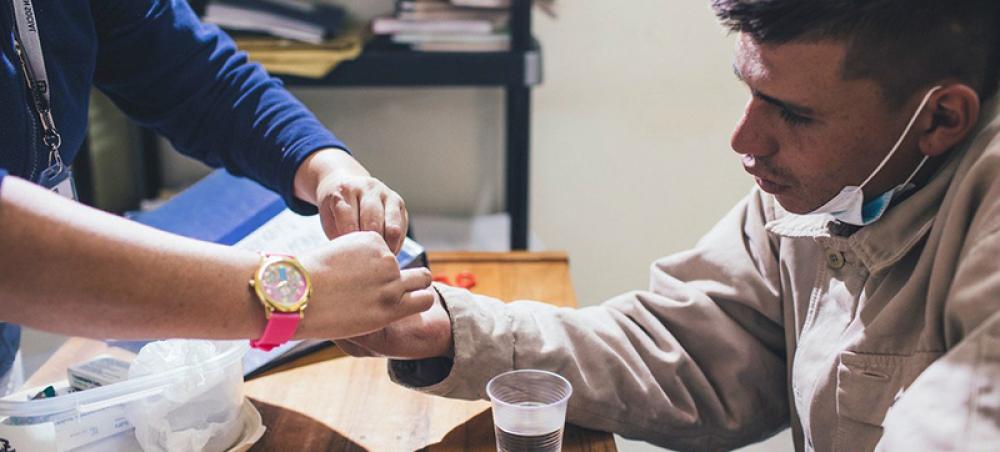Just Earth News | @justearthnews | 24 Mar 2023, 07:44 am Print

Image: PAHO/Joshua Cogan
New York: For the first time in more than a decade, the number of people dying from tuberculosis (TB) rose last year due to disruptions caused by the COVID-19 pandemic, conflicts and other crises, the World Health Organization (WHO) said on Thursday.
On the eve of World Tuberculosis Day, WHO announced that it will expand the scope of a five-year-old initiative in efforts to eradicate one of the world’s top infectious killers by 2030.
TB mainly affects the lungs, but it is preventable, treatable and curable. Although deaths have dropped by nearly 40 per cent globally since the year 2000, 1.6 million people die from the disease annually, and millions more are affected.
Equitable access to services
The WHO Director-General’s Flagship Initiative on TB was established in 2018 to advance research and increase access to services, in support of efforts to end the global epidemic. It will now be expanded and extended through 2027.
The aim is to scale up delivery of quality care to people living with TB through equitable access to rapid diagnostics and shorter all-oral treatment.
New tools needed
WHO also highlighted the pressing need for investment, particularly in new vaccine development, and has proposed the establishment of a TB Vaccine Acceleration Council.
The sole vaccine currently available is more than a century old, plus it does not adequately protect young people and adults, who account for most TB transmissions.
“We need to make the tools we have available to more people. But we also need new tools," said WHO chief Tedros Adhanom Ghebreyesus, speaking in Geneva. "Increasing drug resistance is undermining the effectiveness of some medicines that are used to treat TB,” he added.
Call to action
The flagship initiative aims to spur action and accountability to tackle the key drivers of the TB epidemic, such as poverty, undernourishment, diabetes, HIV, tobacco and alcohol use, and poor living and working conditions.
WHO and partners have also issued a call to action for governments to accelerate the rollout of new oral treatment regimens for drug-resistant TB, which continues to be a pressing health concern.
The UN General Assembly will convene a High-Level Meeting on TB in September, which Tedros said “should be a turning point in the fight against TB, if leaders make real and lasting commitments to invest in the response to TB.”
- New hybrid Mpox strain surfaces in UK and India — WHO sounds global alert
- Deadly weight: Obesity now responsible for 1 in 10 infection deaths worldwide
- Coffee and tea: This everyday drink may help protect your brain from dementia
- Happy Chocolate Day! The sweet secret behind chocolate’s hidden benefits
- Cambridge study finds menopause affects memory, mood, and sleep





-1763561110.jpg)
